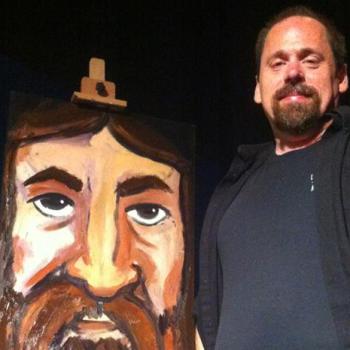Naturally, demagoguery has never been the exclusive province of laypeople. Voris' crowd-stirring chops look puny compared to those of fellow Michigander Fr. Charles Coughlin, whose Jew-baiting radio rants sustained an audience comprising, for a time, one-third of America. But the nature of Church government ensured that Coughlin's influence remained strictly personal; it could not become canonical. The mob might well have elected Coughlin bishop; no nuncio was mad enough to appoint him to the job. Indeed, it was Coughlin's archbishop who—belatedly—did what the Roosevelt administration never quite managed to do: he got him to shut his pie-hole.
The idea of a Church or a diocese dominated by a Coughlin, a Voris, or even a Hudson might sound a little too dystopian to take seriously. But anyone believing lay empowerment will usher in only liberty, equality, and sweet freedom of conscience, should consider lay ecclesial movements like Focolare and Neo-Catechumenal Way. Both were founded by charismatic laypeople. Focolare's founder, Chiara Lubich, was a woman, and decreed that only women should succeed her to the presidency. In both movements, laypeople take charge of one another's spiritual formation. In The Pope's Armada, Gordon Urquart reports they go at it with a single-minded intensity that might have impressed Marcial Maciel:
Many of their main characteristics reflect those of Mao's Red Guards—the fanaticism, the blind obedience, the sloganeering, the personality cult around the Pope, manipulation of the media, anti-intellectualism, denunciations, the formulation of rigid ideology, a younger generation mobilized in the struggle against their elders . . .
Certainly, nobody should take Urquhart's word as definitive. A former member of Focolare, he could be reporting impressions as facts; one man's fanaticism is another's commitment. But even given the meagerest weight possible, his account, along with many others, suggests that laypeople can leave each other feeling just as disgruntled as clerics can. If the inmates are no worse at making their asylum a happy place than Nurse Ratched, there's no reason to suppose they're any better.
A recent study suggests it's impossible to overstate the importance of basic satisfaction, subjectively defined. After analyzing a Pew Research Center survey of ex-Catholics, Fr. Thomas Reese concludes that 71 percent of those who join Protestant denominations—"almost half" the overall number—report that the Catholic Church had failed to meet their spiritual needs. As alienators go, that sense of not being fed "dwarfs any disagreements over specific doctrines."
Time to review: The Church is competing in a buyers' market. Her clerical leadership has surrendered a large share of its credibility. Laypeople are pounding on the gates of the palace, pikes in hand. Here in the West, priestly vocations are declining, and there probably aren't enough Nigerians to fill the gaps. Feeling underserved, the faithful are defecting. Not a pretty picture, is it?
It should be a sobering one. Critics of clericalism may soon find cause to regret what they've wished for. The Church may never place clergy and laity on an exactly level playing field, but I think it likely that weight of numbers will deliver ever-larger shares of influence into lay hands. Laypeople will look up one day to find that the people oppressing them—ruining their worship experiences, shaking their faith—are other laypeople. Hopefully, on that day, we'll have the good grace to see that we have become our own worst enemies.





